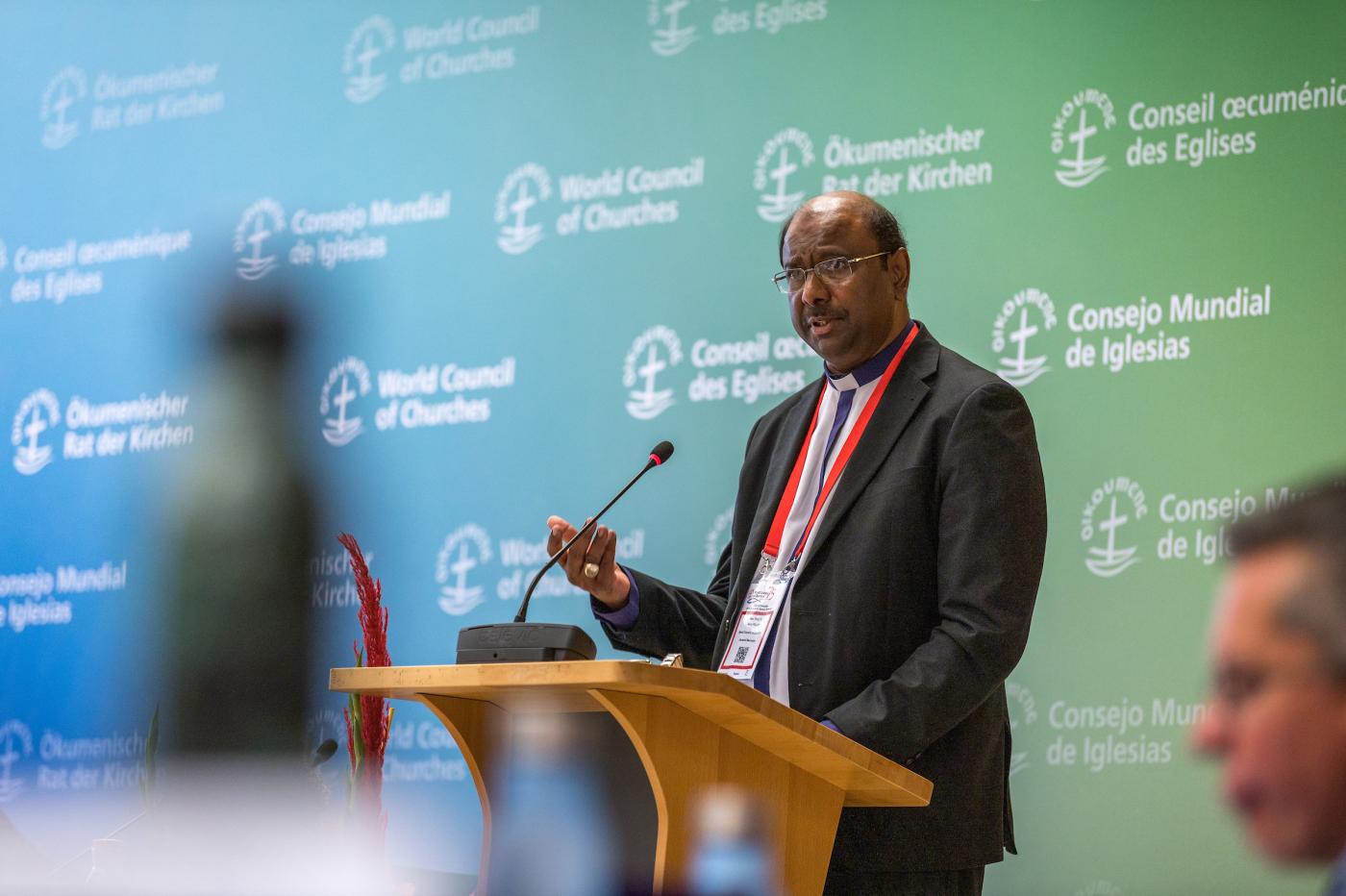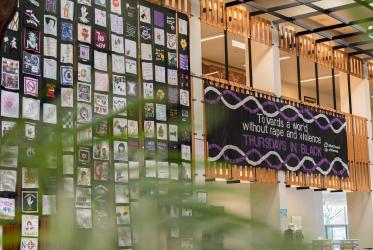What compelled you to become a Thursdays in Black ambassador?
Dr Pillay: Sexual abuse and violence based on a person’s gender or vulnerability should have no place on our streets, in our homes, schools, workplaces, and worship communities.
From growing up in South Africa to now serving as the general secretary of the World Council of Churches, I have seen the personal tragedies and the community and societal impact of sexual and gender-based violence. No one can remain unmoved or silent. As Christians, we have an even stronger mandate to love one another, and to pray, speak and act for abundant life for all.
What have you observed among churches when it comes to gender-based violence?
Dr Pillay: The WCC has lamented the scourge of rape and violence many times. Our statements have confessed that some church leaders have abused those in their care, and instances where churches - which should be places of safety and dignity - failed to protect the vulnerable or seek justice for the abused.
But I have also witnessed churches and church leaders of all walks of life and all over the world, stand up and speak out against gender-based violence. In the WCC, we try to put our words into practice and establish procedures to make sure we remain accountable to each other and to God.
How do Thursdays in Black ambassadors make a difference?
Dr Pillay: Our Thursdays in Black ambassadors lead by example. The Bible studies they have initiated as one of their efforts invite faithful reflection on sexual and gender-based violence. Such reflection helps us listen to the word of God and apply our faith and vision of justice, peace, and love in our contexts today.
As the WCC, we have expressed our vision of love in our Valentine’s Day campaigns, declaring “Love heals, not hurts.”
We have called for justice, such as the work in Korea for former trafficked women in the Japanese military camps.
Our work on transformative masculinities lays the groundwork for transforming behaviours, while concrete efforts to hold perpetrators to account, and support and accompany victims, is still urgently needed in our churches as well as all levels of society.
The Thursdays in Black tapestry, the Waterfall of Solidarity and Resistance brings all these voices and visions to a profound personal level – expressing the pain, resilience, and the hope of our efforts to overcome rape and violence.
What can each of us do?
Dr Pillay: Thursdays in Black is an important movement within the fellowship of churches and beyond that helps make each of us more aware of the violence which too many still experience each day. It could be seen as a simple step – wear black on Thursday, wear a pin to declare you are part of our global movement resisting attitudes and practices that permit rape and violence. But such a simple step can be transformational. It can show others they are not alone. It can spread awareness and the desire for action. It can – and has - made a difference.
I hope you can join us as we pray, speak, and work to change attitudes and practices so that every person, everywhere, feels safe and respected.
Video: #ThursdaysInBlack ambassador - Rev. Prof. Dr Jerry Pillay, WCC general secretary








